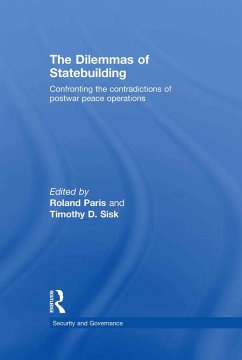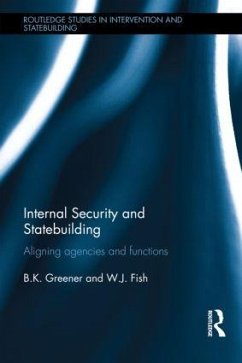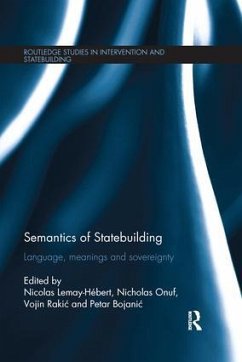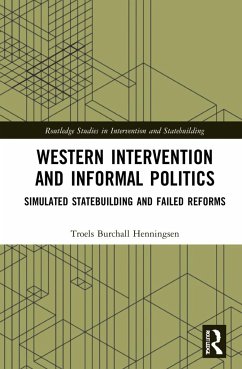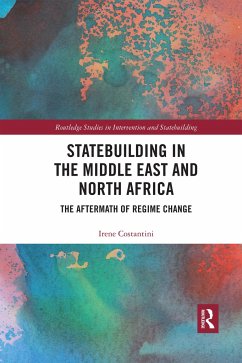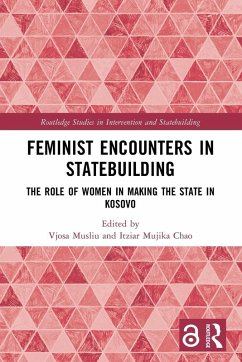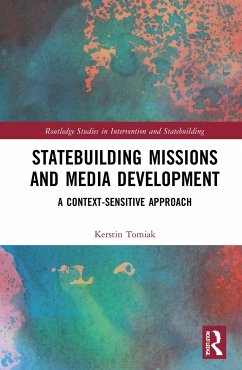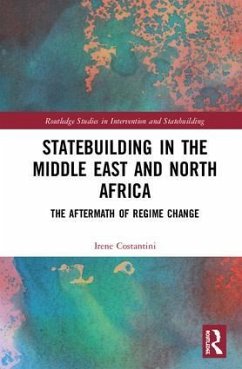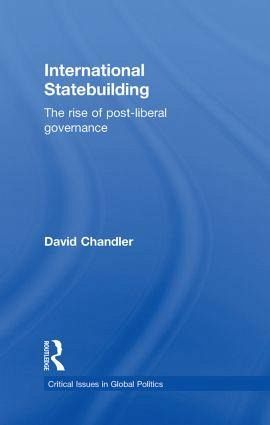
International Statebuilding
The Rise of Post-Liberal Governance
Versandkostenfrei!
Versandfertig in 1-2 Wochen
186,99 €
inkl. MwSt.
Weitere Ausgaben:

PAYBACK Punkte
93 °P sammeln!
This concise and accessible new text offers original and insightful analysis of the policy paradigm informing international statebuilding interventions. The book covers the theoretical frameworks and practices of international statebuilding, the debates they have triggered, and the way that international statebuilding has developed in the post-Cold War era. Spanning a broad remit of policy practices from post-conflict peacebuilding to sustainable development and EU enlargement, Chandler draws out how these policies have been cohered around the problematization of autonomy or self-government. R...
This concise and accessible new text offers original and insightful analysis of the policy paradigm informing international statebuilding interventions. The book covers the theoretical frameworks and practices of international statebuilding, the debates they have triggered, and the way that international statebuilding has developed in the post-Cold War era. Spanning a broad remit of policy practices from post-conflict peacebuilding to sustainable development and EU enlargement, Chandler draws out how these policies have been cohered around the problematization of autonomy or self-government. Rather than promoting democracy on the basis of the universal capacity of people for self-rule, international statebuilding assumes that people lack capacity to make their own judgements safely and therefore that democracy requires external intervention and the building of civil society and state institutional capacity. Chandler argues that this policy framework inverses traditional liberal-democratic understandings of autonomy and freedom - privileging governance over government - and that the dominance of this policy perspective is a cause of concern for those who live in states involved in statebuilding as much as for those who are subject to these new regulatory frameworks. Encouraging readers to reflect upon the changing understanding of both state-society relations and of the international sphere itself, this work will be of great interest to all scholars of international relations, international security and development.





